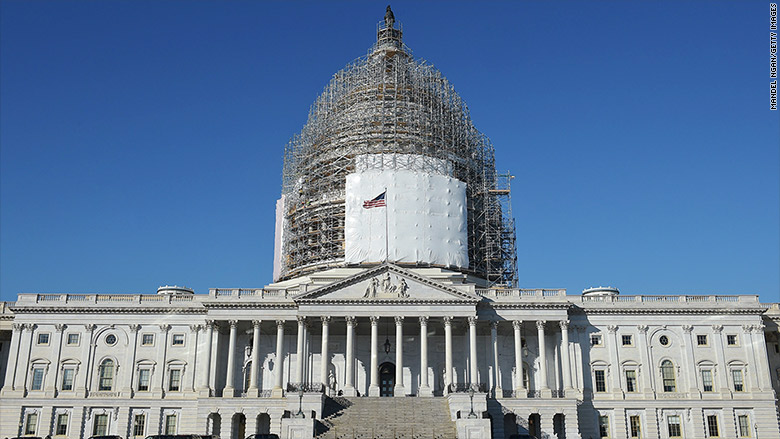
Remember the debt ceiling? Yeah, that -- nothing but political trouble. Congress will need to deal with it again this year.
The question is when exactly.
It had been thought that Congress would need to raise or suspend the debt ceiling by summer.
But federal tax revenue has ticked up recently -- and that will buy lawmakers more time before having to act on the debt ceiling. The Congressional Budget Office now estimates Congress won't need to deal with it until September or October.
And that could sow trouble.
That's because that debt ceiling deadline runs smack into lawmakers' other major obligation this fall: To pass a spending bill for the October 1 start of the next fiscal year or risk a government shutdown.
And many observers say this fall's spending debate could be especially messy over partisan differences about the automatic spending caps required under what's known as the sequester.
If you think this week's fight over Homeland Security funding shows off Washington dysfunction, imagine the possibilities of a potential three-way collision: debt ceiling + October 1 funding deadline + sequester.
The fusion of those factors in September "could prove a toxic mix," said Corey Boles, the U.S. senior analyst for Eurasia Group, in a research note. "There will no doubt be voices in the Republican Party looking for a moment of maximum leverage over the increasingly lame duck president."
President Obama has said he won't negotiate over the debt ceiling.
At the same time, Senate Majority Leader Mitch McConnell and House Speaker John Boehner "have staked their reputations on avoiding a shutdown or a default crisis," said Greg Valliere, chief political strategist at the Potomac Research Group, in his daily email.
But they could meet stiff resistance from some Republicans.
Related: DHS funding stalemate means shutdown likely
Senator Rob Portman, for instance, has introduced a bill that would require any increase in the debt ceiling to be offset by an equal amount of spending cuts over the next decade.
The problem is Congress has already made all the relatively easy cuts. So only the hard ones remain.
If lawmakers want to raise the debt ceiling enough to get Treasury through the 2016 election, they might need to come up with $600 billion or more in cuts.
And that could mean going after entitlement programs like Social Security and Medicare -- something "most politicians would prefer to avoid until after the 2016 election," Valliere said.
At this point, the assumption is that McConnell and Boehner will manage to avert a government shutdown and debt ceiling crisis in the fall.
But that may not happen until the 11th hour. Congress may simply approve yet another short-term funding bill known as a continuing resolution to keep the government open and suspend the debt ceiling ... again.


